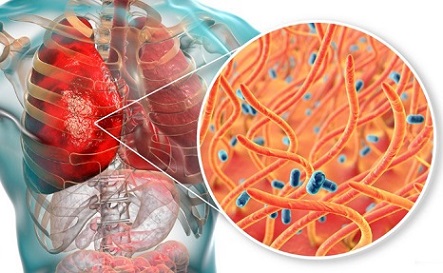U.S. Medical News: Whooping Cough (Pertussis) Outbreak Reported In Marin County, California
Nikhil Prasad Fact checked by:Thailand Medical News Team Mar 30, 2024 1 year, 2 weeks, 2 days, 20 hours, 46 minutes ago
U.S. Medical News: The recent reports of an outbreak of whooping cough (pertussis) at Tamalpais High School in Marin County, California, has brought attention to the resurgence of this vaccine-preventable disease. With 93 reported cases in 2024, primarily among students, the situation has sparked concerns among health officials and the public alike. This
U.S. Medical News report delves into the details of the outbreak, the symptoms and complications of whooping cough, the importance of vaccination, and the measures needed to contain and prevent such outbreaks.
 Whooping Cough (Pertussis) Outbreak Reported In Marin County, California
Understanding the Whooping Cough Outbreak
Whooping Cough (Pertussis) Outbreak Reported In Marin County, California
Understanding the Whooping Cough Outbreak
Marin County, known for its picturesque landscapes and vibrant communities, has found itself grappling with a significant health crisis - a whooping cough outbreak. The outbreak, which has affected 93 individuals in 2024 (65 cases among students from the high school and the rest involving individuals in the county not involved with the school.), predominantly at Tamalpais High School in Mill Valley, has raised alarms among health authorities. Whooping cough, caused by the bacterium Bordetella pertussis, is a highly contagious respiratory disease that spreads through respiratory droplets when an infected person coughs or sneezes.
According to Lindsey Termini, a senior public health nurse for Marin County, the outbreak was first detected in late December, with the number of cases steadily rising since then. Symptoms typically appear within five to 21 days after infection and can range from mild cold-like symptoms to severe coughing fits that leave individuals gasping for air. While antibiotics can effectively treat whooping cough, its impact can be particularly severe in vulnerable populations such as infants, who may experience life-threatening complications.
The Surge of Pertussis Cases in Marin County
Marin County's recent surge in pertussis cases has highlighted the cyclical nature of this disease, with peaks occurring every three to five years. Dr Matt Willis, Marin County's public health officer, emphasized the gravity of the situation, noting that infants, especially those unvaccinated, are at the highest risk of severe illness or even death from pertussis.
Since mid-December, Marin County has recorded a total of 113 pertussis cases, a significant uptick compared to previous years. The outbreak's epicenter appears to be Tamalpais High School, where 65 cases have been reported among students. This concentration of cases underscores the challenges of containing infectious diseases within school settings and the importance of swift and decisive public health responses.
https://www.marinhhs.org/phupdate/public-health-advisory-pertussis-03222024
https:
//www.marinhhs.org/sites/default/files/files/public-health-updates/advisory_-_pertussis_2024.03.22.pdf
Symptoms and Complications of Whooping Cough
Understanding the symptoms and potential complications of whooping cough is crucial for both early detection and appropriate medical intervention. The disease progresses through three stages:
-Stage One (1-2 weeks): Symptoms resemble a common cold, including a runny nose, sneezing, low-grade fever, and a mild cough. However, the cough gradually worsens.
-Stage Two (1-2 months): Coughing fits become more severe, often accompanied by a high-pitched whooping sound as individuals struggle to catch their breath. This stage can involve vomiting, brief periods of breathlessness, and bluish discoloration due to oxygen deprivation.
-Stage Three (weeks to months): The recovery phase begins, but coughing fits may persist, especially if the individual contracts another respiratory infection.
Complications of whooping cough, particularly in infants and young children, can include pneumonia, middle ear infections, dehydration, seizures, and, in severe cases, death. Timely diagnosis, treatment with appropriate antibiotics, and supportive care are essential in managing the disease and preventing complications.
Importance of Vaccination and Preventive Measures
Vaccination remains the most effective strategy for preventing whooping cough and reducing its impact on vulnerable populations. The recommended pertussis vaccine for infants and children is DTaP, which provides protection against diphtheria, tetanus, and pertussis. Boosters are also recommended for adolescents and adults to maintain immunity.
In light of the outbreak at Tamalpais High School, health officials stress the importance of up-to-date vaccinations, proper respiratory hygiene, and staying home when sick to prevent the spread of infectious diseases. Close contacts of infected individuals, such as family members, should also receive antibiotics as a preventive measure.
Response and Mitigation Efforts
Marin County's health department has been actively involved in investigating and containing the whooping cough outbreak. Public health advisories, collaboration with educational institutions like Tamalpais High School, and community outreach efforts are crucial components of the response strategy. By promptly identifying cases, providing medical guidance, and promoting vaccination, health authorities aim to limit the outbreak's scope and protect vulnerable individuals.
Conclusion
The whooping cough outbreak in Marin County serves as a sobering reminder of the ongoing threat posed by vaccine-preventable diseases. While advancements in healthcare have significantly reduced the burden of infectious diseases, outbreaks like these underscore the importance of vaccination, public health vigilance, and community cooperation in safeguarding public health. By prioritizing prevention, early detection, and effective intervention, communities can mitigate the impact of infectious disease outbreaks and promote a healthier future for all.
For the latest
U.S. Medical News, keep on logging to Thailand Medical News.
